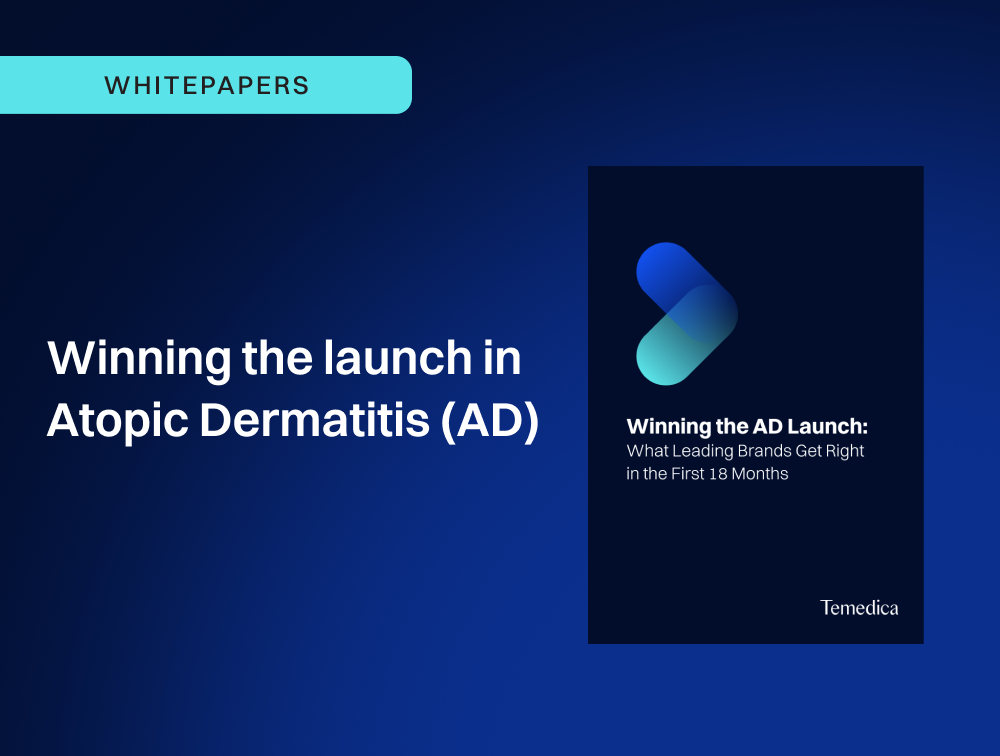How patient-reported outcomes (PRO) drive better pharma insights & outcomes
Driving healthcare innovation with patient-reported outcomes
Patient-reported outcomes (PROs) are revolutionizing the healthcare industry by empowering individuals to actively contribute to their own health management. This shift towards patient-centric care is driven by advancements in technology, such as health apps and wearables, enabling the seamless collection and integration of real-world evidence (RWE). For pharmaceutical companies and commercial pharmaceutical organizations, leveraging PROs is essential for sharpening strategic decision-making, enhancing patient care practices, educating healthcare professionals (HCPs), and engaging scientific leaders in the dissemination of findings.
The essence of patient-reported outcomes
PROs encompass information provided directly by patients regarding their symptoms, daily routines, health interests, and overall experiences related to particular medical conditions. This data is collected through various means, including surveys and medical questionnaires, diaries and journals, interviews, and wearables and apps that passively or actively record health metrics such as steps, sleep patterns, and symptom variations. Integrating PROs into healthcare practices offers a holistic view of patient health, often missing in traditional clinical settings.
The role of patient companion apps
One major source of insights into patient cohorts is through patient companion apps. In Temedica's case, these apps are collaboratively developed with commercial pharmaceutical teams, and the collected data is further analyzed by Temedica's Permea Patient Voice platform to deepen the understanding of treatment intricacies. Patient apps like Temedica's offer several unique benefits:
- Data Collection and Aggregation: Patients input their data into the app, which can include daily symptom tracking, medication adherence, lifestyle factors, and more. This data is aggregated to create a broad dataset reflecting the health patterns of diverse patient cohorts.
- Anonymization and Privacy: Ensuring patient privacy is paramount. The data collected is anonymized to protect individual identities while still allowing for the analysis of trends and outcomes across large groups of patients.
- Analysis and Insights: The anonymized data is analyzed to identify patterns, trends, and correlations that can inform treatment strategies, clinical research, and healthcare policies. For instance, insights from these analyses can highlight common side effects of medications, the effectiveness of treatment protocols, and areas needing further research.
- Feedback to Patients: Patient companion apps also play a crucial role in engaging patients by providing personalized feedback. This can include individual analysis results, health tips, and reminders, fostering a sense of partnership in their health journey. Individual results are shared with patients via in-app analysis screens, ensuring all patients receive their analysis, whether they give consent or not. Aggregated results are communicated to patients via newsletters and app articles.
The use of patient companion apps demonstrates how technology can bridge the gap between patients and healthcare providers, offering a dynamic and interactive approach to health management. The longitudinal patient data collected through these apps provides a comprehensive view of patient health over time, allowing for more accurate and effective healthcare interventions.
The impact of patient-reported outcomes on healthcare
Enhanced patient engagement is one of the most significant impacts of PROs. By actively participating in their health management, patients become more engaged and informed about their conditions, leading to better adherence to treatment plans and improved health outcomes. PROs also allow healthcare providers to tailor treatments based on individual patient data, moving away from a one-size-fits-all approach. This personalization enhances the efficacy of treatments and reduces the risk of adverse effects.
Continuous data collection through wearables and apps enables real-time monitoring of patients, facilitating early detection of potential health issues and allowing for timely interventions and preventive measures. Furthermore, PROs provide researchers with a rich source of real-world evidence, enhancing the understanding of disease progression and treatment effectiveness. This data is invaluable for clinical trials and observational studies, leading to more robust and generalizable findings.
Overcoming challenges in utilizing patient-reported outcomes
Despite its numerous benefits, integrating PROs into healthcare systems faces several challenges. Ensuring the confidentiality and security of patient data is paramount, necessitating stringent data protection measures and informed consent from patients. The variability in data collected from different sources can also pose a challenge. Standardizing data collection methods and ensuring data accuracy are essential for reliable analysis. Additionally, seamlessly integrating PROs with other real-world sources, like electronic health records (EHRs) and other healthcare systems, requires significant technological infrastructure and interoperability standards.
Moreover, patients must be willing to share their data. The interactive and educational character of patient companion apps has fostered a positive response to transparent data sharing in Temedica's apps, indicating growing patient readiness for this evolving healthcare model. This readiness stems from the integrity and transparency in data use, which is crucial for gaining patient trust.

Future directions and opportunities for commercial pharma
The future of PROs in healthcare is promising, with several key opportunities on the horizon. Advancements in artificial intelligence and machine learning algorithms can enhance the analysis of PROs, uncovering patterns and insights that inform clinical decision-making and personalized treatment plans. Building collaborative ecosystems involving patients, healthcare providers, and technology developers can drive innovation and the effective utilization of PROs.
Patient-reported outcomes hold immense potential to transform healthcare by providing pharmaceutical companies and all stakeholders of the ecosystem with authentic insights into patient journeys and treatment effectiveness. By leveraging PROs, companies can enhance strategic decision-making, improve patient care practices, educate healthcare professionals, and engage scientific leaders in disseminating valuable findings.
Learn more about how Temedica helps pharmaceutical commercial teams leverage patient-reported outcomes for deeper insights and better healthcare solutions or follow us on LinkedIn for updates.
-2.png?width=2000&height=1031&name=Blog%20(2)-2.png)




